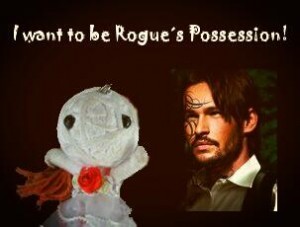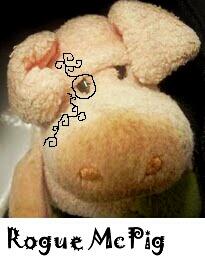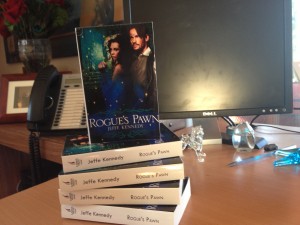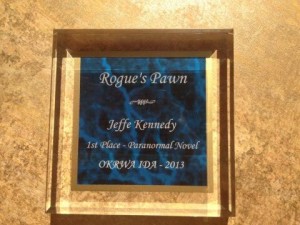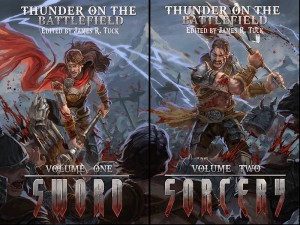 The cover for Act III of the Master of the Opera e-serial coming out starting December 31. No blurb for this one yet, so you’ll just have to use your imagination.
The cover for Act III of the Master of the Opera e-serial coming out starting December 31. No blurb for this one yet, so you’ll just have to use your imagination.
You know you want to.
So, this week was kind of difficult for me due to the day job. A big project was due on Tuesday. It’s a long story, but let’s see if I can summarize. I worked on this project as one of the team leaders for about 13 years, until it was finally cancelled. Early on, I began recording our protocol – the rules we followed for making audit decisions – mainly because that’s the kind of girl I am. Eventually we were tasked to take our informal document into a more formal format. Over the years, it became a terrific and popular tool in our niche field. I was referred to as the “Protocol Queen.” Yes, I admit it – I was proud of it and my work on it.
Fast forward to now – the project was axed due to lack of funding. This year we were tasked to make a final update to the Protocol, set it up so people could use it without us and set it free. Of course, I did most of the work, along with a junior person. Then we ran into a SNAFU with the client currently in charge. My boss got into trouble for no fault of her own and we ended up burning a LOT of hours dealing with the problems. Our big boss asked someone else in the company to step in as project manager, to help deal with the client. At the end, the new manager did her QA. On Tuesday morning, the day it was due, I discovered she’d not only done her QA on an old version, she’d done it without Track Changes due to time constraints. The document was 125 pages. My junior person did a document compare, to make sure all the fixes we’d made between the version she changed and the good one, got transferred over. She said the edits were so dense, she could barely find our previous fixes.
I didn’t have time to read it, so what had been my baby went out that way.
I tried to let it go.
But what had started as a headache and feeling tired the previous week, turned into a full-blown, knock-me-out being sick Wednesday morning. I felt exhausted, achey, crushing headache, nauseated, roiling gut – I was miserable. Unable to think, I had to take a sick day – both from day job and writing – and spent the day whimpering in my armchair.
For the record, I’m not really a migraine girl, but I do get headaches when I’m sick.
Fortunately, I live with a Doctor of Oriental Medicine and he gave me acupuncture and some teas and by that night I was somewhat human again and much better the following afternoon.
It doesn’t escape me, however, that the project was over and I spent time resting and letting it go.
This reminds me of an article I’ve saved, because I wanted to blog about it. It’s an interesting article and well worth reading. In fact, I think everyone should probably read it and see if they recognize themselves. This gal ended up going completely bald from stress.
I was in Chicago for a sales conference, and I remember being in the hotel room and seeing that my hairline looked weird. I thought maybe I was just having a bad hair day. When I got home, I had a quarter-sized hole in the back of my head. I went into panic mode. I was seeing this guy, who is now my husband, and we were spending a lot of time together, so I was like, “You need to just look at this. Am I crazy? What do you see?” Within a week, I went to the doctor who told me I have Alopecia. It’s a genetic condition, but it doesn’t necessarily manifest until stress triggers it.
My doctor asked if I had gone through a traumatic event recently or if anything had changed in my life. I said, “No, but it’s been pretty stressful at work.” I had been thinking, “If I don’t get this promotion, I’m going to quit.” That may not seem like a big deal, but I felt like I had helped build the company, and I thought I would be there forever. I don’t know if it was the stress I’d felt struggling so hard to find the right fit at work and then the fear of leaving that made me go bald, but it was definitely a huge contributing factor.
This struck me, because it reflects so much of what gives me stress – that emotional commitment to my work. When she talked to her manager:
I went to speak to my manager. I said, “Look. I don’t know what needs to happen here, but I’m overwhelmed. I’m losing my hair.” He didn’t know how to react. He just looked kind of dumbfounded, because at that time it wasn’t obvious yet. I was still able to maneuver my hair so no one could tell. Maybe they just thought it was in my head. My manager said, “I know you want to move into this new position. Are you saying you can’t put those hours in to get there anymore?”
I think what’s striking about this is, how little the medical establishment and employers credit stress for what can be massive effects on our health. It’s one of those “It’s invisible, therefore it can’t be real” things. (For the record, my boss is wonderful and totally gets it – this was out of her hands.) The doctors look for trauma. The employers want us to get over it and move on. Neither of these approaches gets at the real problem.
Once, when we were in Scotland on vacation and riding one of their lovely trains, we overheard a conversation between a woman and her companion. She told her friend, “My doctor says I have the heart of an American. I have to slow down and reduce stress or it’s gonna kill me.”
That has stuck with me ever since. “The heart of an American.”
Apparently the international symbol for stress.
But, as Americans, we don’t realize it. We’re so accustomed to living with certain stress levels that we’re only aware when it really puts us out of commission. Even then – as I did – we tend to blame it on a virus or some such. And it could have been a virus that made me sick (that’s what it felt like). If that’s the case, then emotional stress of the preceding days diminished my immune system enough that it got the upper hand.
I don’t know that there’s any solution but to take stress seriously. At least for me, it’s something that can affect me profoundly. It’s something just to “get through.”
Fortunately, today is Friday.
~does the Friday dance~

